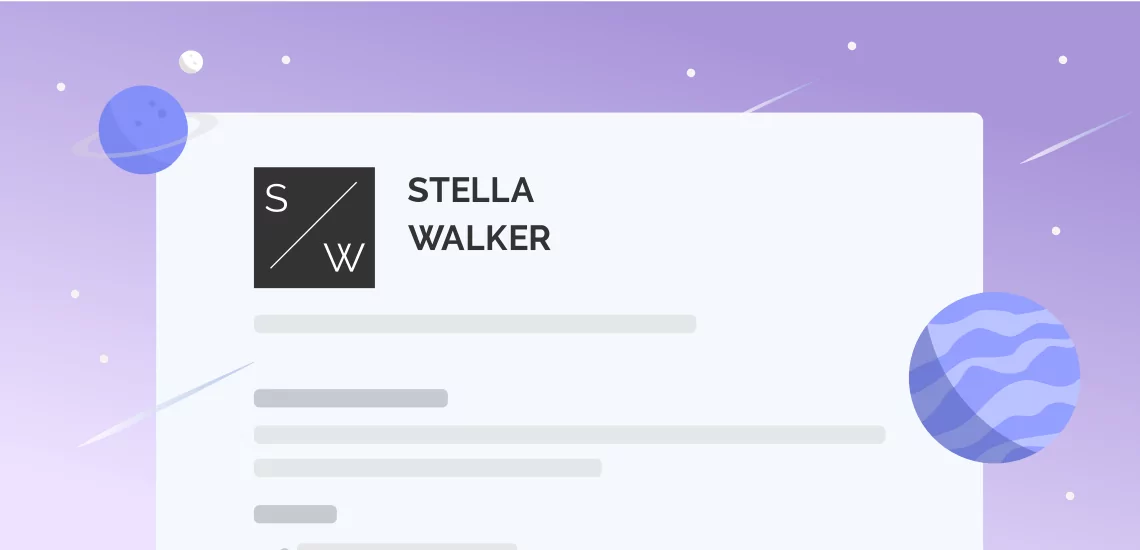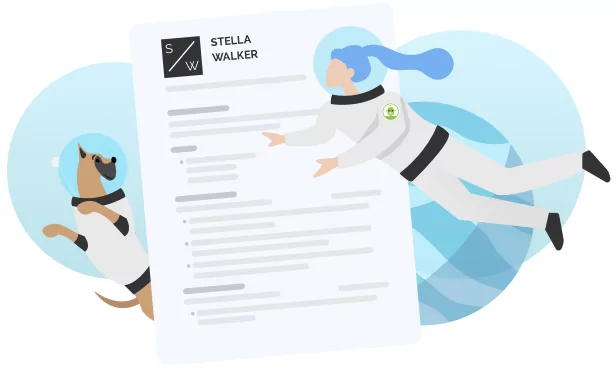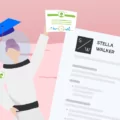Is your resume too long? Here’s what to do when your qualifications don’t fit on one page. Create an impactful resume that gets results with ResumeNerd.

Writing a One-page Resume That Gets Results
Five Tips to Get Results in Your Job Search Faster By Writing a One-page Resume
The content of your resume is not the only thing hiring managers are looking at – the layout of your resume is equally important to landing your dream job. A well-composed and easy-to-read resume is a must for you to get noticed and hired. The length of the resume is a popular topic that sometimes confuses job seekers. What is the best approach when writing your resume?
This guide will show you:
- Why a one-page resume is a good thing, even if you have a lot of experience
- How to edit your resume to be shorter or longer
- Five tips that can help you to fit your resume on one page
- Frequently asked questions about one-page resumes

What Is a One-page Resume?
Simply put, a one-page resume is a resume that fits on a single page. This is the most common and most popular length of resume to submit to a job application. Many hiring managers prefer one-page resumes for several reasons.
What Is a One-page Resume?
Simply put, a one-page resume is a resume that fits on a single page. This is the most common and most popular length of resume to submit to a job application. Many hiring managers prefer one-page resumes for several reasons.
- One-page resumes are easier to read
- Contact information is more easily located on one page
- Relevant information is not diluted by extra details
A one-page resume will include:
- Contact information, including professional links such as LinkedIn
- Resume summary or resume objective
- Work experience/work history section
- Skills section
- Education section
- Certifications and achievements
What To Do When Your Resume Is Too Short
If you have little to no work experience, then you might find yourself in a situation where your resume is actually less than one page. There is nothing wrong with having a simple resume; however, you may want to lengthen it to one page. Even for an entry-level job, there are details that you can include to impress the hiring manager.
If you don't know what to put on your resume and worry there is too much blank space, try using a different resume format. While the reverse chronological resume format is the most popular format, it may not be the best for your needs. For example, if you don’t have very much work experience, you may benefit from a functional resume format instead, as a functional resume format will focus on your skills and qualifications. You can easily fill one page with skills, certifications, education history, and relevant courses or training. You may include internships or volunteer work in place of work experience.
Five Tips to Get Your Resume Down To One Page
There are multiple things you can do when you feel like your resume is too long.
- Emphasize your most relevant experiences and skills. Do not be afraid to skip the experiences that are less relevant, even if you are proud of them. Hiring managers and recruiters only need to see your last ten years of experience.
- Use bullet points and short phrases instead of sentences or paragraphs to describe skills, tasks and experiences.
- Think about the layout and design of your resume. Are there graphic design elements such as lines that can be removed to make your resume look cleaner and create extra space? For example, including your contact information in a more compact resume header can give you more room for the rest of your resume.
- Look at different resume templates online to see how different layouts can help you save space on your resume. A simple resume template can make a big difference in how much space your information takes up. Resume layout can often be adjusted to create a clean resume.
- Note where there is extra space on your resume. For example, you can reduce the page margins of your resume slightly or adjust the extra space between sections to create more room for information.
After you’ve done all of this, proofread your resume and make sure it doesn’t look too crowded.
FAQ: One Page Resume
You can remove the skills section, but as this is one of the most important sections of your resume, it’s not recommended. Another option is to subtract a few skills from your skills section, but address key skills within your experience section. Narrow your focus to skills mentioned in the job posting.
The number of pages in your resume does not include your cover letter. Your cover letter can be one page, and your resume should be a separate page. Both should include your contact information in case they get separated from each other.
Make your resume stand out for the right reasons by editing your information to include only the most relevant details. You can try using columns of bullet points in your experience section in place of long sentences to save space. You can also explore different resume examples in your field to get inspiration for how you might include information within the page. You don’t have to be talented in graphic design to create a great resume – use a customizable resume builder to quickly put together a professional resume with your own information.







